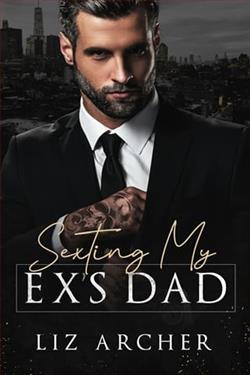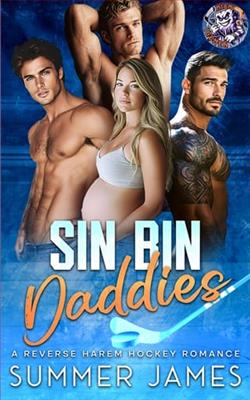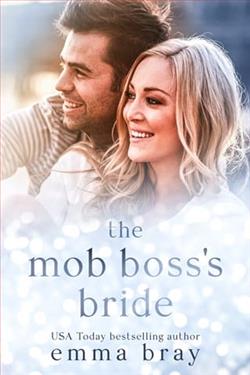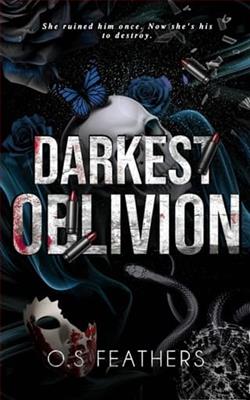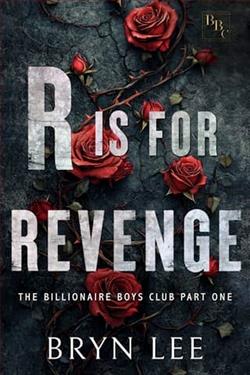Page 77 of The Business of Blood
I was not welcome here.
“Let us drink and wait for the crowds and police to disperse, shall we?” He nudged me forward, toward the back wall.
“I-I don’t really drink.” I offered a mild protest around a voice still infuriatingly unsteady.
“An Irish woman who doesn't drink? Have you ever heard of such a thing?” When I didn’t respond to his ribald teasing, he sobered. “Come now, Fiona, just something to calm your nerves.”
My nerves. I didn’t think they’d ever be calm again. Perhaps it was best I searched for courage of the liquid variety. “Very well, just the one.”
I’d never felt so conspicuous as when he directed me through the candle-lit restaurant and coffeehouse. I’d have thought such a dim, windowless place would be gloomy. But I found the contrast of white walls and dark wood painted with candlelight downright cozy. In all, The Morning Star was a great deal less rowdy than the cafes in which you’d find the students, artists, and young philosophers locked in sprightly discussion in Chelsea or along the Strand.
Men here spoke in sonorous tones. Respectful, even when impassioned. Their conversations most often carried on in a guttural but lyrical language I understood to be Hebrew. I could not imagine anything so different from my own native Gaelic. Nor so similar-sounding in the back of the throat.
Men eyed me with rank speculation as we passed. I could tell some of them liked the Hammer, and some of them were disgusted by him, but they all cast their eyes down and issued respectful nods as he passed.
A few greeted, “Shalom Aleichem.”
He always answered back, “Aleichem shalom.”
His were not a people, I gathered, where a blanket greeting to a room would do. I couldn’t imagine a regular tipping into the place with a rote, “Oi, mates!”and receiving anything back but censorious glances.
The Morning Star was larger than I’d guessed, and partitioned by a few railings, screens, and decorative columns to attempt to give every table the illusion of privacy. We claimed a spot in a rear nook of the café away from the only windows by the door. The Hammer positioned himself with his back to the wall.
I sat across from him but could not be still. Little tremors and twitches erupted in strange parts of me. My upper thigh. My eyebrow. My shoulder. My muscles zinged and twinged with the last vestiges of primitive instinct and mortal fear.
I wondered if I’d ever relax again.
Squinting, I traced a lovely tapestry woven with a symbol I’d never seen before, hanging behind the Hammer’s head. I longed for the extra pair of spectacles I kept back at home.
The Hammer ordered in Hebrew from a hovering, anxious waiter, who served us generous glasses of garnet-hued wine and dark, salted bread accompanied by a dish of thick liquid as smooth and gold as honey.
“We prefer olive oil to butter,” the Hammer explained.
“You’ve never had Irish butter, then.” I eyed the dish with more than a little incredulity, not believing him for a minute. How could anyone prefer anything to butter?
“Haveyouever tasted olive oil?”
“No,” I conceded.
An ewer and bowl were brought to our table, and we each washed our hands. I wasn’t sure about the Hammer, but I was unspeakably grateful for the low light in the café. Perhaps the waiter wouldn’t notice the traces of blood.
If he did, he gave no indication.
Once we were alone again, the Hammer broke the bread, dipped a small piece into the olive oil, and passed it to me.
The last thing I felt like doing was eating, but I took it, remembering my manners.
“Everything tastes better to someone who just escaped the clutches of death, or someone who is about to surrender to it.” This was the Hammer’s idea of frivolous conversation? He observed me candidly as I popped the warm morsel into my mouth, and whatever expression I made pleased him enough to warrant a smile.
He wasn’t wrong. I’d rarely tasted better in my life. I should note here that I wasn’t about to give up my position on the superiority of Irish butter. Still, a good olive oil was now a welcome addition to my palate.
Awareness returned to me in warm, sluggish increments. A melancholy tune filtered from around a wall in a dark corner I could not see.
Now that we’d settled in, conversation resumed throughout the café with a muted, almost reverent hum. Strong coffee scented the air, but we were offered none.
The Hammer rested his fingers around his glass and lifted it toward me. “L'chaim.To life.”
I touched my rim to his, trying—and failing—to hide my trembling. “Sláinte. To health.”








